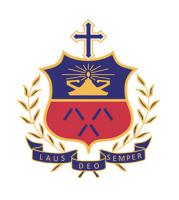| Language Policy |
English is the medium of instruction for all subjects except Chinese subjects. The split-class mode has been adopted in many junior English classes.<br>To improve students’ language abilities, language-based activities are organized to enable them to master the use of English, Chinese and Putonghua. |
| Learning and Teaching Strategies |
Student-centred strategies and IT are used to raise the efficiency of teaching and learning. To equip students with self-learning skills, different learning activities including projects, reading promotion programmes, research, class discussions, computer or eLearning activities and visits are provided.<br>Moreover, the school has made an effort to create a good harmonious learning environment which instills in students the importance of creativity, citizenship, a sense of responsibility and willingness to serve others. <br>Different subject combinations are offered to S.4-S.6 students. Students can make their choices according to their interests and abilities.<br>S.1 to S.3 students are offered English and Chinese reading periods per cycle. To enhance students' interest in reading, they are encouraged to write book reports and read Chinese and English newspapers. Students can get into the habit of reading newspapers and improve their presentation skills. In addition, students are encouraged to take part in various reading activities so that a good environment for reading can be created. |
| School-based curriculum |
1. Electives: 2X and 3X. 60 subject combinations are available to 2023/2024 S.4 students.<br> 2. Curriculum highlights: <br>(1) The school has revised the curriculum of S.1-S.3 Integrated Humanities helps students develop critical thinking and other generic skills, and prepares them for the learning of Citizenship & Social Development. <br>(2) STEM and eLearning education and activities inside and outside classroom are enhanced. |
| Approach to Catering for Learner Diversity |
Streaming and small class teaching are arranged for S.1 English Language and some S.1-S.3 Chinese Language classes. Small class teaching is also arranged to some S.2 and S.3 English Language classes. Elite classes, enhancement programmes and remedial classes are held for high achievers, gifted students and lower achievers respectively. Special classes for students with SEN are also held. Through the collaboration of the school, teachers, parents, Old Boys and students, various measures are implemented to support the development of students and to cater for their needs. |
| Approach to Integrated Education |
The Student Support Team consists of an SEN Coordinator, Educational Psychologist, Student Counsellor, SEN Teacher Assistant, social worker and teachers.<br>The Student Support Team uses the Learning Support Grant to fund support from NGOs for speech therapy, social skills training, attention and executive skills training and Chinese reading and writing courses. These services help students with SEN reduce their barriers and integrate into every-day school life. The Student Support Team will make assignment adjustments and put into place special examination arrangements for the students with SEN where necessary. Our school-based Educational Psychologist and Student Counsellor will give an individual counseling service to needy students.<br>Co-operation between home and school is vital. The Student Support Team will contact the parents of each student with SEN, assess the student’s needs and explain the support measures that are available to the student. We will report the student’s progress and evaluate each individual upon completion of the programme. If parent have any questions or problems, they can discuss them with the SEN Coordinator or the student counsellor.<br>The Student Support Team is responsible for promoting teacher training designed to enhance teachers’ capacity to cater for students with SEN. It also plans and organizes school-based professional development activities with this same aim in mind. If a student is believed to have special educational needs, teachers can refer the student to the Student Support Team, which will arrange for the student to see our school-based Educational Psychologist at once. Early identification and early intervention are our principles. |
| Education Support for Non-Chinese Speaking (NCS) Students |
|
| Home-School Co-operation |
The PTA was set up in 1998 to enhance liaison between the school and parents, facilitate communication between parents & teachers, discuss matters of mutual concern, improve students' welfare and update school facilities. |
| School Ethos |
Students enjoy a simple and democratic school life. The Student Association is an autonomous organization which leads other clubs and societies in school.<br>The school has also set up other units to provide pastoral care for students, for instance, the Moral and Civic Education Committee, the Disciplinary Board, the Counseling Team and the school social worker work hand in hand to help students adapt to school life, have a better understanding of themselves and build up a virtuous value system. |
| School Development Plan |
1. To enhance students’ attitude and motivation towards learning<br>2. To promote values education<br> |
| Teacher Professional Training and Development |
In line with Education Bureau guidelines, the school organizes three staff development days every academic year. The aim of these development days is to raise teaching efficiency and to attain goals in education. Furthermore, our teaching staff is enthusiastic about taking part in training programmes held both inside and outside school to fulfill the Bureau's requirements of staff continual professional development. |
| Life-wide Learning |
Life-wide Learning Activities including Extra-curricular Activities, and Co-curricular Activities.<br>To develop students' potential to the full, the school has set up the student association, school sports teams, school music teams, 2 uniform groups and 24 clubs. The clubs can be categorized into four main groups, namely the academic group, interest group, arts group as well as religious and services group. Study tours, English classes, co-curricular activities and inter-school activities are also organized.<br>Student leadership training and careers guidance are given to sharpen students' competitive edge. |
